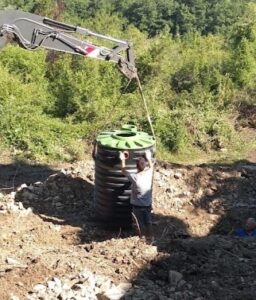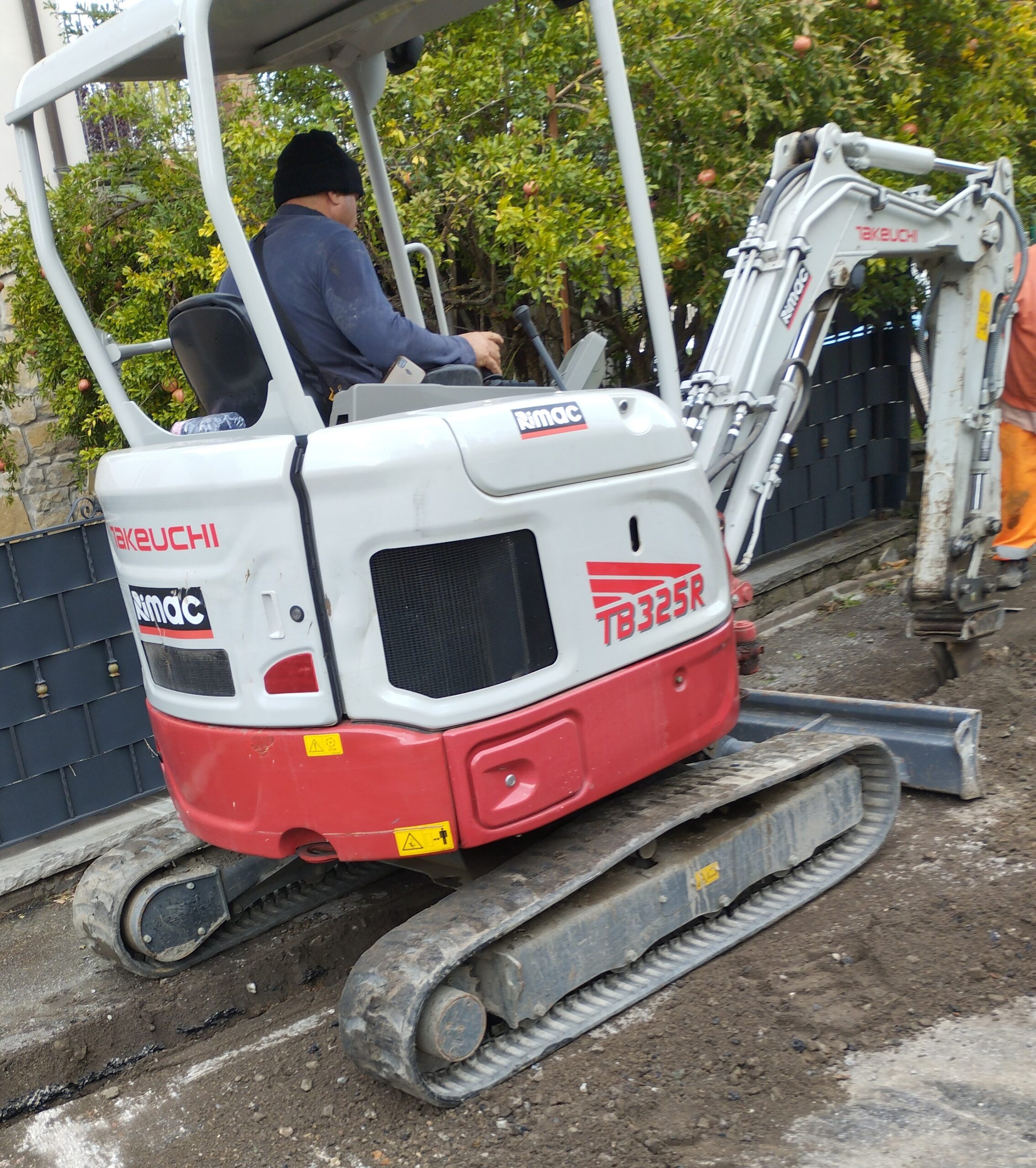
Manutenzione – Maintenance
Previously on: The mayor has promised to visit for an assessment of the ‘entire’ drainage problem in our borgo, but Giorgio’s septic tank is still leaking.
It’s been three weeks since the consiglio with the mayor and his grand promise to visit our borgo “as soon as possible” to assess the situation in person. There are eight of us gathered outside for an apericena — an aperitivo with so much food that it conveniently replaces cena, dinner. Around here, they also call it an aperitivo prolungato, an extended aperitivo. The concept remains the same: everyone brings something to eat, something to drink, and then you sit at the table for hours — indoors or out, depending on the weather. Ideally, you don’t schedule anything too ambitious for the following morning.
The attendance is determined by “coincidences.” So far, no one in the borgo has thought to organize these gatherings via the Borgo Casigno WhatsApp group, and I certainly won’t be the one to suggest it. One of the advantages of these evenings is that you stay up to date with the latest gossip and can easily make arrangements. Think of it as an informal town council.
The table is overflowing: Annarita’s pickled vegetables (age is no barrier to attending un’apericena, though the “slightly older” do tend to leave earlier); Marco’s arancini —golden, stuffed rice croquettes; Laura’s homemade pesto on focaccia; and much more. Paola has brought a bottle of homemade basil liqueur, now waiting for the right moment in the freezer. Spirits are high. Marya has a new job, Paola’s grandson has been accepted into liceo classico, a high school with obligatory classical Latin and Greek, and our son in the Netherlands has just passed his bachelor’s degree.
Only Giorgio seems a little subdued. Several times, he looks like he wants to say something, but then decides not to. Eventually, he can’t contain his frustration any longer.
“The mayor has postponed our appointment three times, and now he won’t even pick up the phone anymore. The problem seems to be the ufficio tecnico … Cosa fare? What do we do?”
Annarita, sitting across from me, stands up, gives me a knowing wink, and retrieves the bottle of liqueur from the freezer.
“Facciamo un brindisi!” A toast. “To good neighbours.”
When the generally chaotic conversations have resumed, she takes Giorgio aside. He listens, at first shaking his head, then his face starts to brighten. Annarita scribbles something on a piece of paper and hands it to him.
Thursday morning at seven, Casigno’s peace is brutally shattered. Simone, in his excavator, rumbles up to Giorgio’s house. Simone has a small farm just across the road, and besides his job at the airport, he does a little bit of everything for everyone. Swinging from the excavator’s arm is a black plastic tank the size of a very large wine barrel. I recognize it immediately: an Imhoff, a modern septic tank.
I take the dog for a walk, but by half past eight, my curiosity gets the better of me.
Following the noise, I find that Simone has really been at it for an hour. His son is just now arriving in a small truck. Up the hill Giorgio and Marco are standing by a freshly dug hole. Simone climbs down from his excavator to direct his son, showing him where to position the truck’s bed. Inside are a grease trap and a bacterial filter. Annarita appears with a tray full of coffee cups and her percolator, big enough to serve coffee for an orphanage. She owns at least six of them, in varying shapes and sizes.
Evidently Simone is demolishing the old fossa biologica and installing the new Imhoff in its place.
“How did you manage to get a pratica this quickly?” I ask.
Giorgio looks from me to Simone, who already has the answer ready.
“Ho fatto la segnalazione. I submitted a notification.”
He laughs at my puzzled expression.
“We’re doing ‘maintenance’ on the fossa. And manutenzione? That only needs to be reported. No permit required.”
“But you’re replacing everything and adding new components?”
Simone nods. “Manutenzione e ristrutturazione. Maintenance and restoration. Ristrutturazione can also mean ‘improvement.’”
“But that means it’s still not a norma.”
Giorgio shrugs. “It wasn’t a norma to begin with.”
He has a point.
“But the mayor—you told him exactly what the problem was. About the fossa, the pratica. He’ll know this isn’t just maintenance.”
Annarita refills my cup and smiles.
“Siamo in un borgo, in montagna, in Italia, caro. We’re in a hamlet, in the mountains, in Italy.”
And the mayor wants to be re-elected, I add silently.
